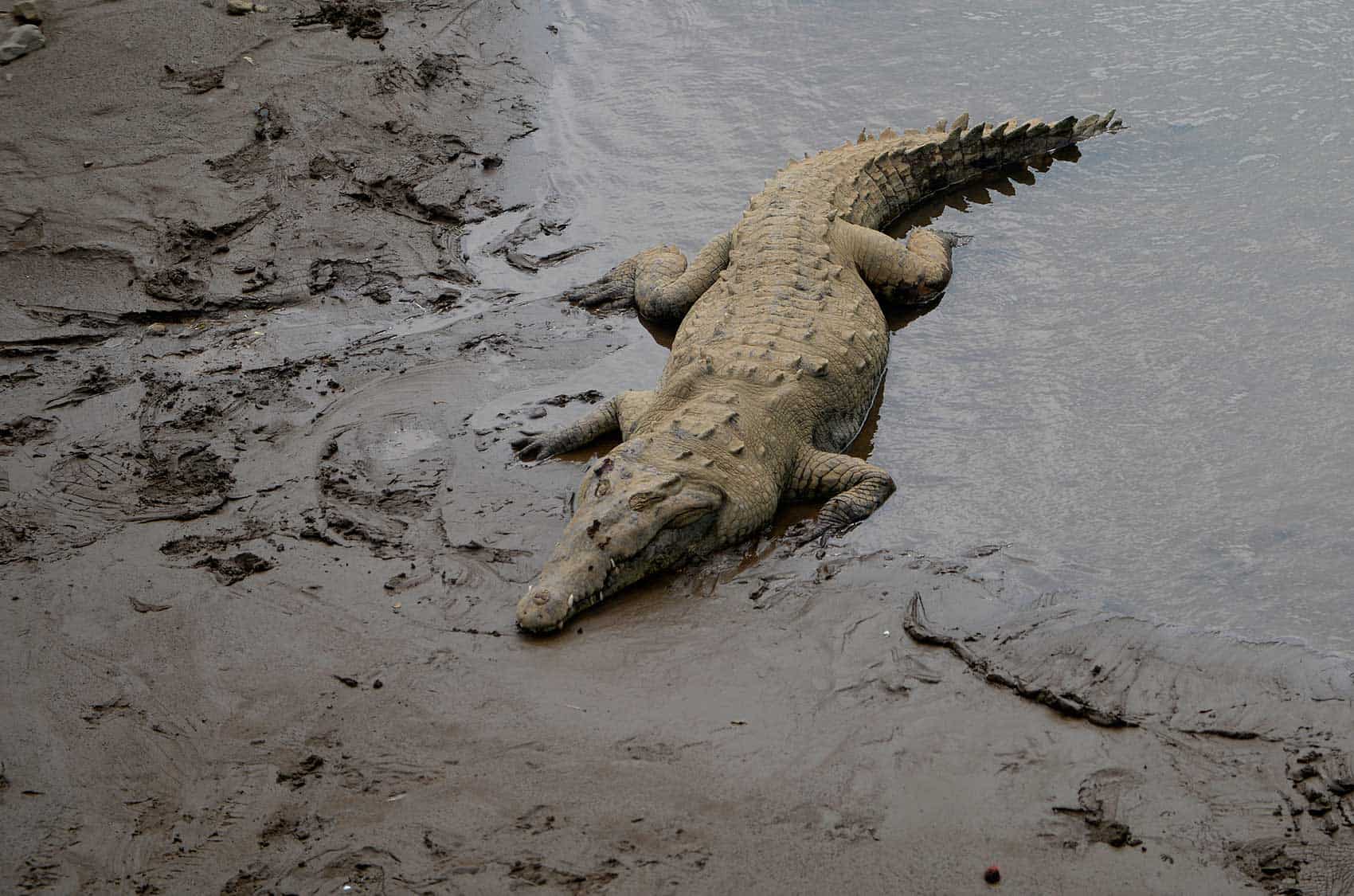The site of dozens of huge crocodiles are looming on the surface of the Tárcoles, others are resting on the shore of this Costa Rican river that daily vomits tires and plastics into the Pacific mangroves.
Some 2,000 American crocodiles (Crocodylus acutus) inhabit the Tárcoles, which originates in the Central Mountain Range, near San José, and into which sewage waste and garbage have been dumped for decades, invading the ecosystem of its mouth, in the Gulf of Nicoya.
“It is a super-polluted area, but this has not affected the crocodile populations,” said Iván Sandoval, a biologist at the National University of Costa Rica.
On the banks of the Tárcoles, these animals rest in the sun, unmoved by the pollution, feeding on fish that come up the river from the sea.
Although some 150 types of bacteria have been detected in these waters, the crocodiles “are not necessarily affected by them,” says Sandoval.
“The Tárcoles River is the most polluted river in Costa Rica and even one of the most polluted in Central America. It has a large amount of discharges from the entire urban area. You can find heavy metals, nitrites, nitrates, a large amount of human waste,” adds the crocodile expert.
Living fossils
These enormous reptiles “are living fossils”, which have the capacity to tolerate very difficult conditions, the researcher emphasizes. “They haven’t had to change anything in millions of years, in their design they are perfect.”
Although pollution does not affect them, these animals are in danger of extinction in Costa Rica. In Brazil, on the other hand, the population of broad-snouted caiman (Caiman latirostris) has recovered.
This led a summit committee of the Convention on International Trade in Endangered Species of Wild Fauna and Flora (CITES), which ends this Friday in Panama, to authorize Brazil to export caimans born in captivity.
New Threats
Threatened in the past by hunting, since 1980 the crocodile populations “are recovering” in the Tárcoles, although certain activities linked to tourism put this recovery at risk, warns Sandoval.
Some tourists feed the reptiles in a country where feeding wild animals is prohibited.
“It has been conditioning the behavior of the crocodiles, so that instead of being elusive and moving away from people, they come closer,” says Sandoval.
Garbage
Dozens of boats loaded with tourists, mostly foreigners, navigate the river every day, seeking the experience of seeing six-meter reptiles up close and in the wild.
Juan Carlos Buitrago, 48, is a boat captain and tour guide and for almost 30 years has been taking visitors to see the wonders of the fauna and flora of this basin.
Non-boaters can observe the crocodiles from a bridge on the route between San José and the Pacific.
Buitrago says that he and other locals regularly remove hundreds of tires and plastics washed up on the riverbank.
“The Tárcoles River is known for crocodiles not (only) nationally but also worldwide. We cannot hide the contamination,” he said resignedly.
Buitrago blames the garbage on the more than two million inhabitants of the metropolitan area of the capital.
My Office
Costa Rica has a reputation as an example of environmental protection, with a third of its territory protected, but the law does not always translate into action, as is the case in Tárcoles.
Environmental lawyer Walter Brenes, 34, calls for concrete actions for this watershed.
“Costa Rica has dedicated itself to the creation of laws, regulations and decrees, trying to think that if we turn everything into regulations, the problem will be solved,” he said.
However, the “regulations do not solve the problem”, so it is necessary to “create a real public policy that is completely directed to the protection of wildlife,” he says.
While sailing, Buitrago delights in the flight of macaws at sunset, but believes that his compatriots should “stop polluting” a waterway that he considers his “office”.
“Here we try to clean up, to pick up the tires, the plastics,” but none of that is any good “if those at the top continue to pollute,” he recalls.






